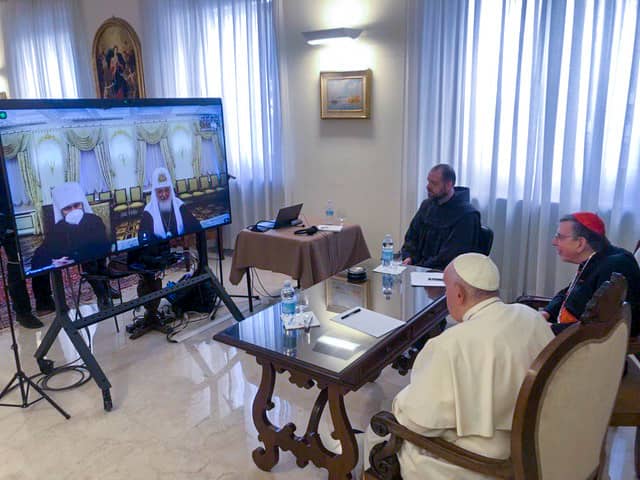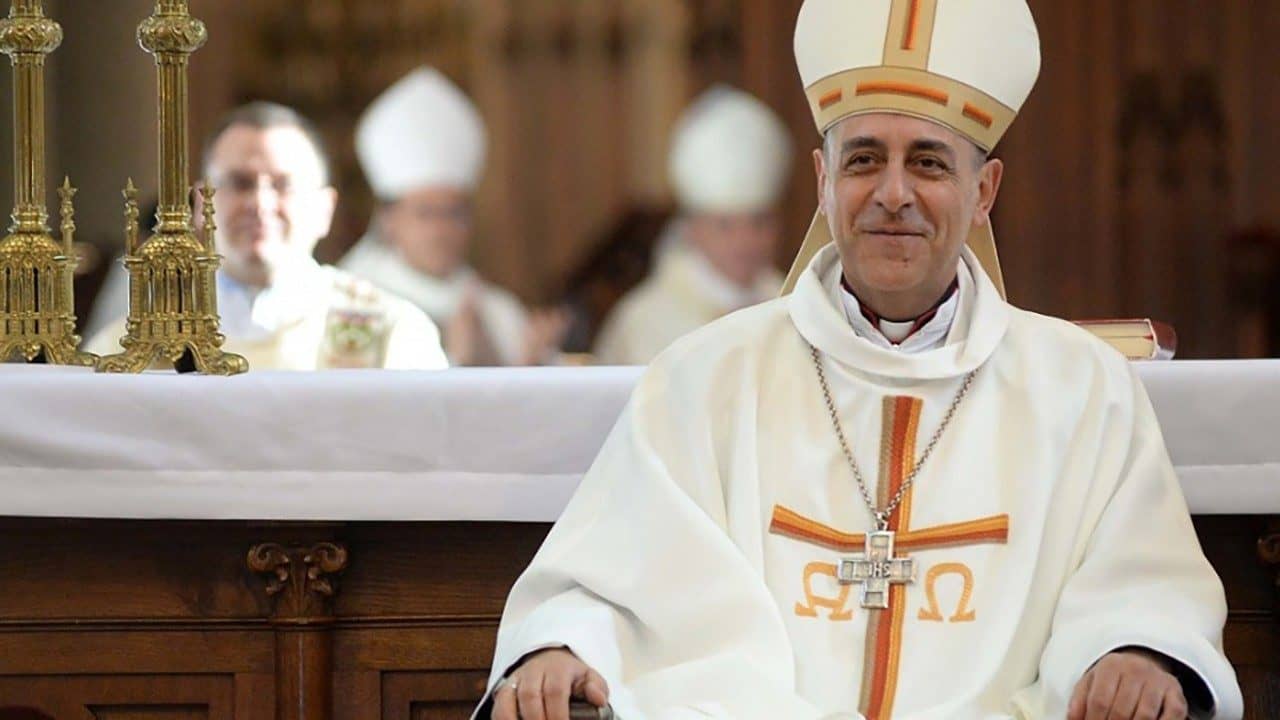On Thursday, a delegation of international bishops ended their week-long pilgrimage of the Holy Land.
For two decades, the Holy Land Coordination has brought bishops from North America, Europe and South Africa to Israel and Palestine in a show of solidarity for the Christians in the region.
The plight of the native Christian population has been a concern for generations. In 1900, Christians made up about 10 percent of the population of the region, but now only constitute about 2 percent.
This year, the bishops focused on the Christians within the state of Israel – most of whom are Israeli citizens.
About 80 percent of these Christians are Arabs and suffer from being “a double minority” – As Arabs, they are a minority in the Jewish-majority state, and as Christians they are a minority among the Muslim majority Arabs.
Not only does this lead to discrimination, but it can affect the Christian community in other ways, including the fact that since the two largest faiths are Judaism and Islam, the weekend is observed on Friday-Saturday, making attending Mass an added burden on Sunday, the first day of the Israeli workweek.
Christians can also suffer in the world of politics, since there are sometimes votes to be won by appealing to the concerns of Muslim voters, but there is little to be gained from seeking the Christian vote.
One Christian population that has been growing in Israel are non-Arabs. When Jews in the ex-Soviet Union immigrated to the country, they often brought their non-Jewish relatives, many of whom are Christian. In addition, there are a large number of migrant workers from the Philippines in Israel, as well as African refugees from Ethiopia and Eritrea, although most of these entered the country illegally.
Unlike their Arab coreligionists, these Christians live in the Hebrew-speaking society, and are less invested in opposing the occupation of the West Bank and Gaza. Conversely, non-Arab Christians are much less likely to be Israeli citizens and can have a precarious position in the country.
“Israel’s Christians wish to live as full citizens, with their rights recognized in a plural and democratic society. We have seen the vital contribution that they make especially through schools, hospitals, involvement in public life and attempting to build bridges between different faiths,” the Holy Land Coordination noted in their concluding statement.
“Yet it is clear that at the same time they face profound difficulties across all aspects of their lives. We have heard that, along with other Palestinian Arab citizens and migrants living in Israel, many Christians find themselves systematically discriminated against and marginalized,” the statement continued.
The bishops said that “Israel was founded on the stated principles of equality between all its citizens,” adding this “urgently needs to become the lived reality.”
Given the United States is Israel’s biggest supporter – both financially and in opinion polls – there is a large role America can play in helping Israeli Christians.
First of all, last summer’s “Nation State Law” declaring Jews to have exclusive “national self-determination” in Israel has critics charging it has created an apartheid state. All religious minorities are at risk, but since Christians are such a small minority, they are likely to suffer more.
Secondly, the United States could put diplomatic pressure on Israel to conclude the now decades-long negotiations with the Vatican on property and tax issues. There are several Church-owned properties under Israeli control – most prominently the Cenacle of the Last Supper – and Church entities are often handed huge tax bills from different Israeli authorities.
These issues were supposed to be resolved quickly after diplomatic relations were established in 1993 – but every year, a communique was published by the Bilateral Permanent Working Commission between the Holy See and the State of Israel declaring a resolution is near, and nothing happens. They last met in 2017, again hoping for a “rapid conclusion.” A dispute over an attempt to tax Church properties in Jerusalem last year led to the closing of the Holy Sepulcher for a short time – a rare sign of unity among the different Christian groups that control the shrine, but also a sign of how important an agreement on economic issues is for the local Church.
Finally, the Trump administration could reverse its decision to end funding the UN agency which gives most of the support to Palestinians, threatening education, health care, and other social services in the region.
These policy shifts might seem small, but they would do a lot to help keep Christians in the Holy Land.
In their statement, the bishops of the Holy Land Coordination said they admired the Christians for “not losing hope” and said through “prayer, pilgrimage and practical solidarity” we can “keep that hope alive.”
And the U.S. can do its part.















